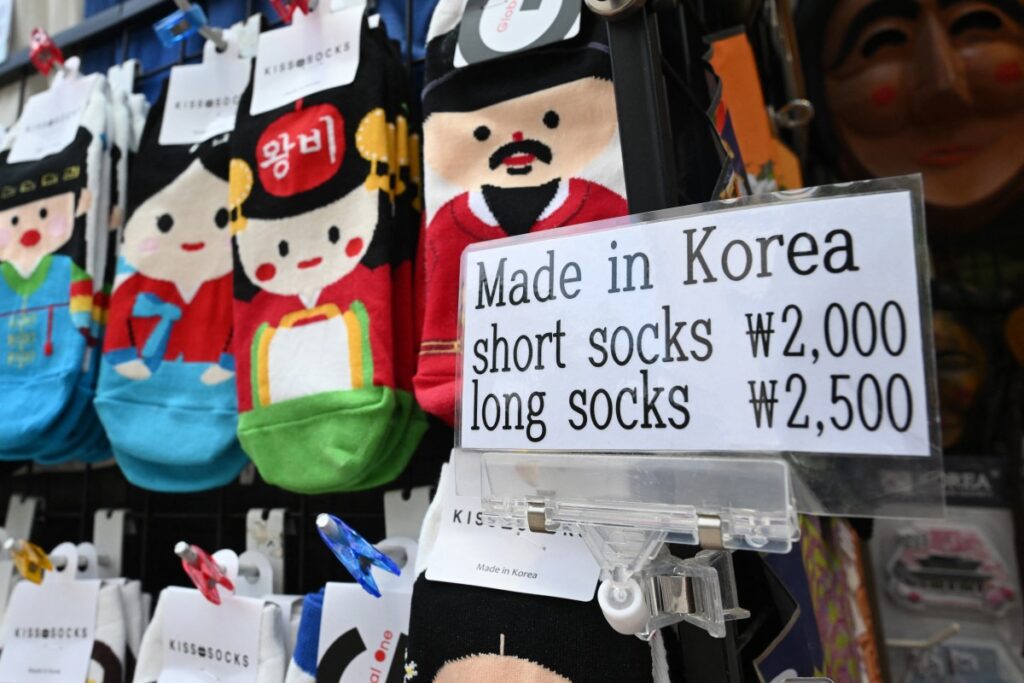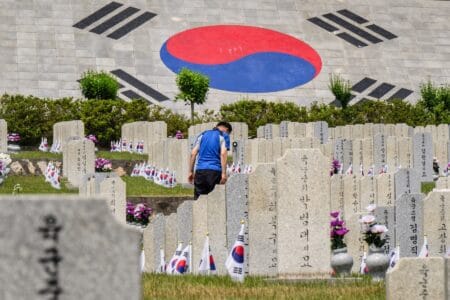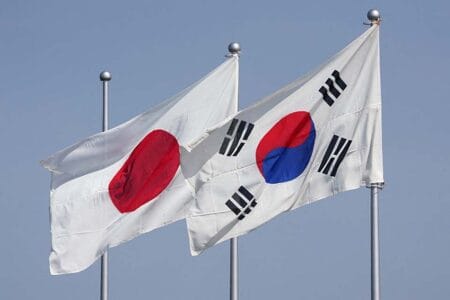July 9, 2025
SEOUL – After the White House’s announcement of steep tariff hikes on 14 countries, South Korea looked to Washington for further negotiations, hoping to blunt the impact before the measures take effect next month.
Unveiling a new deadline of Aug. 1, which had previously been July 8, the letter signed by US President Donald Trump indicated that most South Korean goods entering the US will be charged a tariff of 25 percent. The rate would not stack on top of sector-specific tariffs — such as for cars, auto parts and steel products, among others — according to Trump’s posts on Truth Social on Monday.
The letter also indicated that the White House would “perhaps, consider an adjustment to this letter,” adding that the tariff rate may be “modified.”
Seoul interpreted the letter as conveying Washington’s willingness to continue negotiations until the delayed deadline.
Kim Yong-beom, director of national policy for President Lee Jae Myung, said in a contingency meeting he convened that Seoul was able to buy more time for tariff talks, adding Washington’s letter did not translate into an immediate tariff hike.
According to the presidential office, Kim also said that the importance of serving the national interest outweighs that of reaching a deal swiftly.
The meeting was attended by Ha Joon-kyung, senior presidential secretary for economic growth; Oh Hyun-joo, third deputy director of national security; Yoon Sung-hyuk, presidential secretary for industrial policy; and vice ministers of the Industry Ministry, Finance Ministry and Foreign Ministry.
Lee’s spokesperson Kang Yu-jung’s remarks echoed Kim’s statement.
“We find it significant to have secured a new negotiation deadline of Aug. 1,” she said. “We regret the outcome in some aspects, but considering the time constraints since (Lee) took office, we believe that we have avoided the worst-case scenario of a US tariff hike.”
Kang added that Seoul will continue to push to swiftly address trade tariff uncertainties.
“We hope that we can make better results during the period of negotiations we obtained,” she said.
Asked about the chances that a Lee-Trump summit could take place before the Aug. 1 deadline, Kang said the schedule for the summit was being coordinated, without further elaboration.
Earlier Tuesday, the presidential office said that Wi Sung-lac, director of the National Security Office, met with his US counterpart Marco Rubio in Washington on Monday and expressed South Korea’s desire to advance negotiations based on the spirit of their alliance. Rubio currently doubles as the US secretary of state and White House national security adviser.
Wi also expressed hopes to Rubio that a summit between Lee and Trump could take place shortly.
The White House broadly agreed with Wi’s sentiment, according to the presidential office.
Lee, who convened a Cabinet meeting at his office Tuesday, did not bring up the US tariff notification letter, according to Kang.
Along with the South Korean president, leaders of Bangladesh, Bosnia and Herzegovina, Cambodia, Indonesia, Japan, Kazakhstan, Laos, Malaysia, Myanmar, Serbia, South Africa, Thailand and Tunisia also received similar letters.
Lee’s office, meanwhile, is reportedly considering dispatching seasoned politician Kim Chong-in and Reps. Lee Un-ju and Kim Woo-young as special envoys to the US.
Concerning this matter, Woo Sang-ho, senior presidential secretary for political affairs, said Monday that a US special envoy “is not designed to touch on specific agenda of the parties’ countries,” but added it could be more desirable to capitalize on “both formal and informal relations, rather than moving through a single channel, for US tariff negotiations.”
According to the US Census Bureau, the United States ran a $66 billion trade deficit with South Korea in 2024.
consnow@heraldcorp.com







